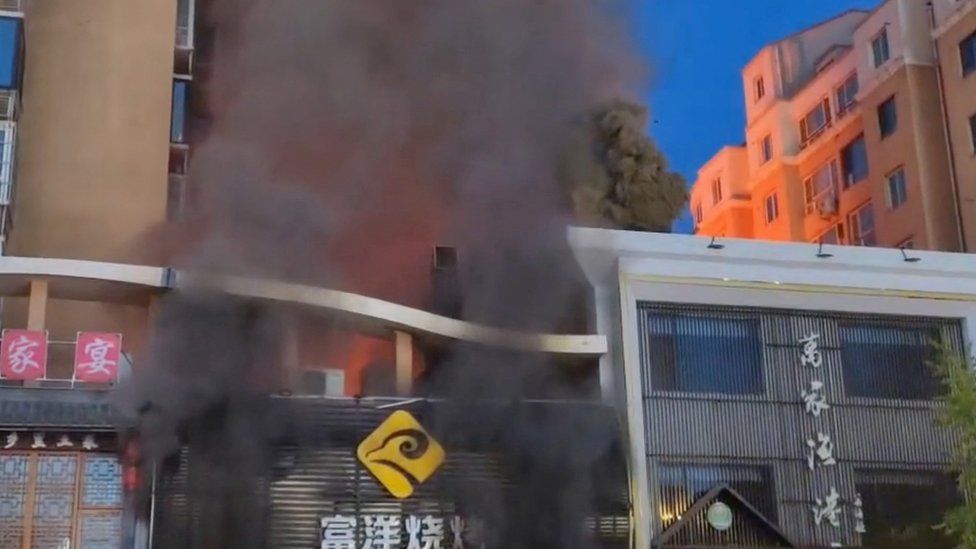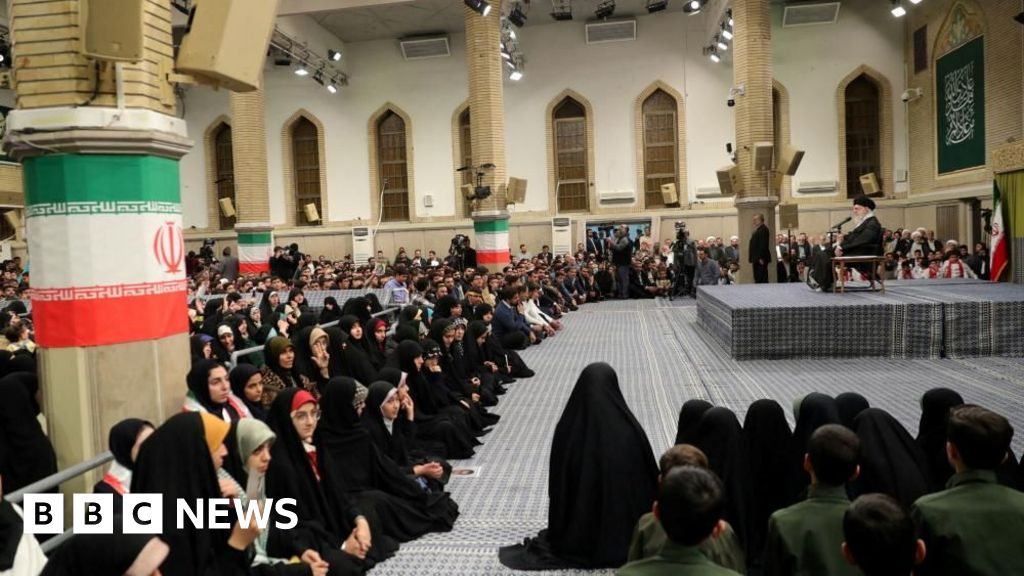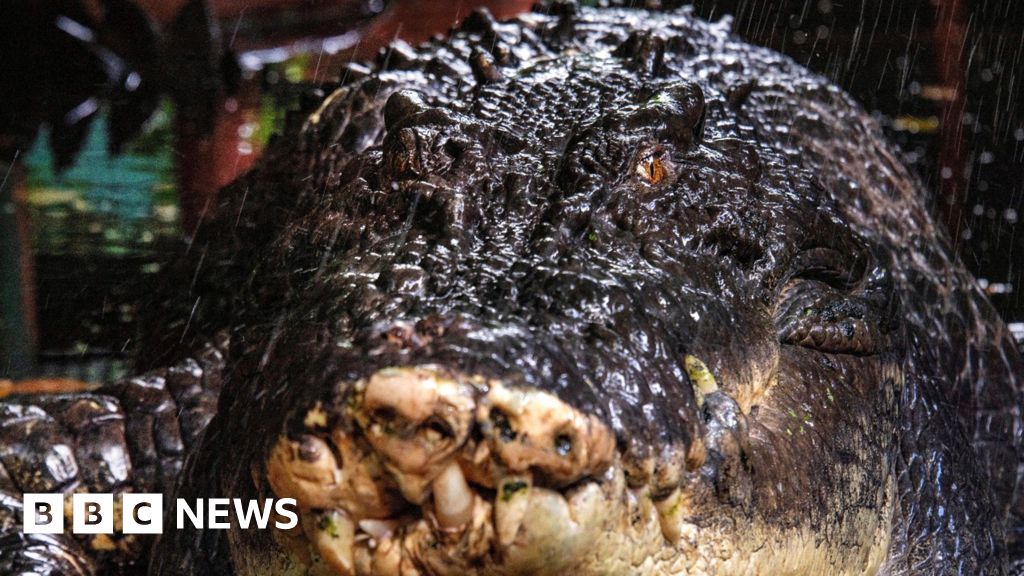ARTICLE AD BOX
 Image source, REUTERS
Image source, REUTERS
Black smoke billows from the burning Fuyang Barbecue Restaurant
By Nicholas Yong
BBC News, Singapore
Nine people have been detained over an explosion at a barbecue restaurant in north-west China which has killed at least 31 people.
A gas leak is suspected to have caused the explosion in Yinchuan city on Wednesday night local time.
Chinese President Xi Jinping has called for "all-out efforts" in the rescue operation and a probe into the blast.
The owner of the Fuyang Barbecue Restaurant was among those in custody, state media reported.
The explosion occurred on the eve of the three-day Dragon Boat Festival holiday in China, a time when many families and friends gather for celebratory meals.
Several high school students and retirees were among the dead, local media reported.
The death toll is expected to rise with at least seven people injured, one of whom is in a critical condition, Xinhua news agency reported.
President Xi Jinping has called for "all-out efforts" in treating the wounded and boosting safety measures.
"We must do our best to rescue the injured and reassure the families of the casualties, identify the cause of the accident as soon as possible, and seriously pursue responsibility according to the law," Mr Xi said.
The restaurant is part of a cluster of eateries and entertainment venues in downtown Yinchuan, the capital of the Ningxia autonomous region.
State broadcaster CCTV aired footage of more than a dozen firefighters fighting the blaze as smoke poured out of a gaping hole in the restaurant's facade. Shards of glass and other debris littered the street.
Fire and rescue services dispatched more than 100 personnel and 20 vehicles to the scene, the Ministry of Emergency Management said. The rescue operation lasted until 04:00 local time Thursday.
According to a preliminary investigation by the fire department, a restaurant employee had smelled a gas leak about an hour before the explosion.
He then discovered a broken valve on a liquefied gas tank, and was in the process of replacing it when the blast occurred, local media reported.
Barbeque restaurants are emblematic of China's street vendor economy and a favourite of locals in the country's north-west regions.

 1 year ago
14
1 year ago
14








 English (US)
English (US)